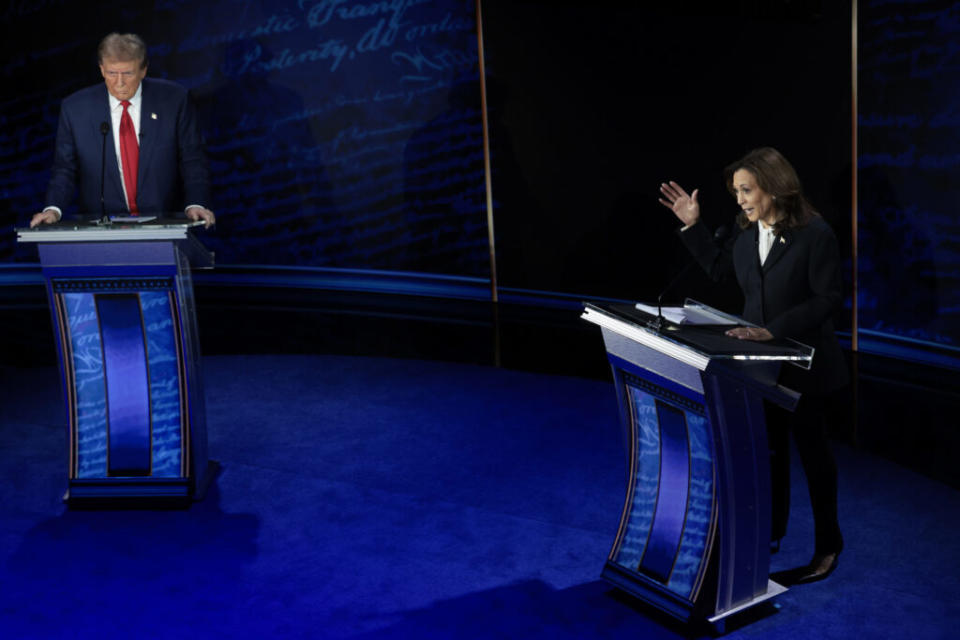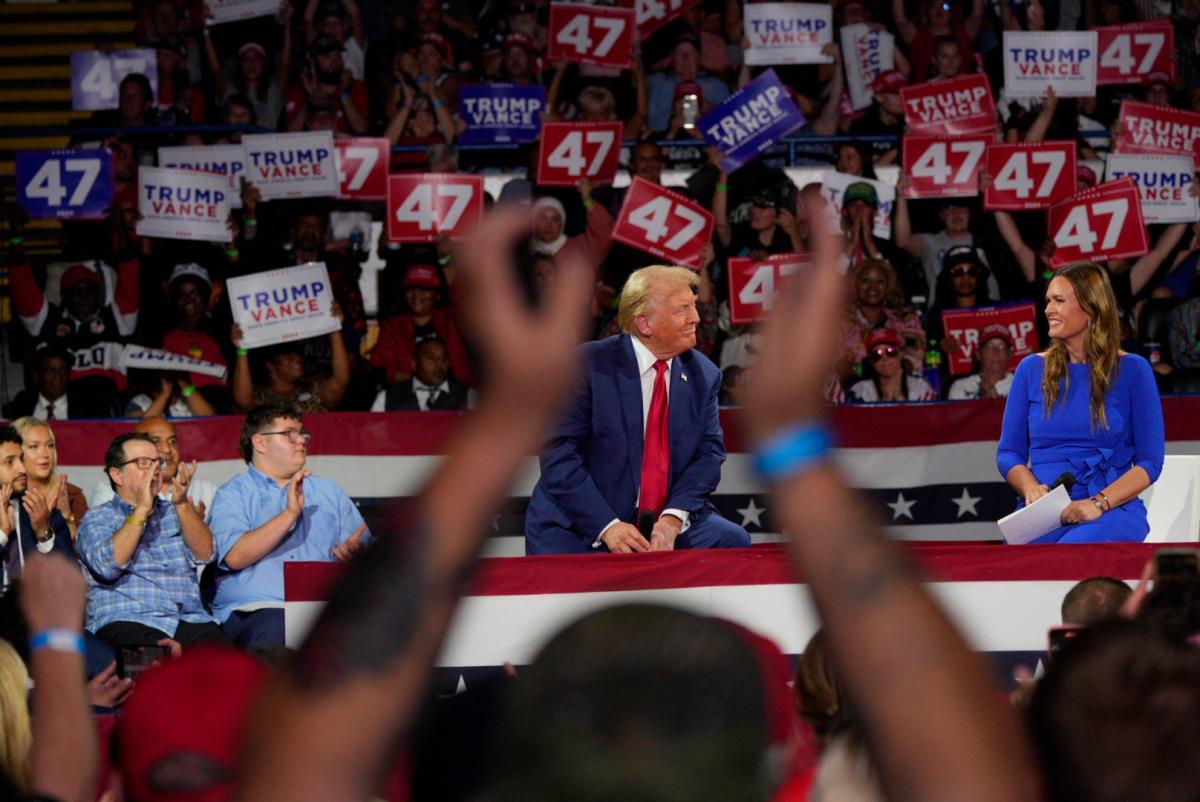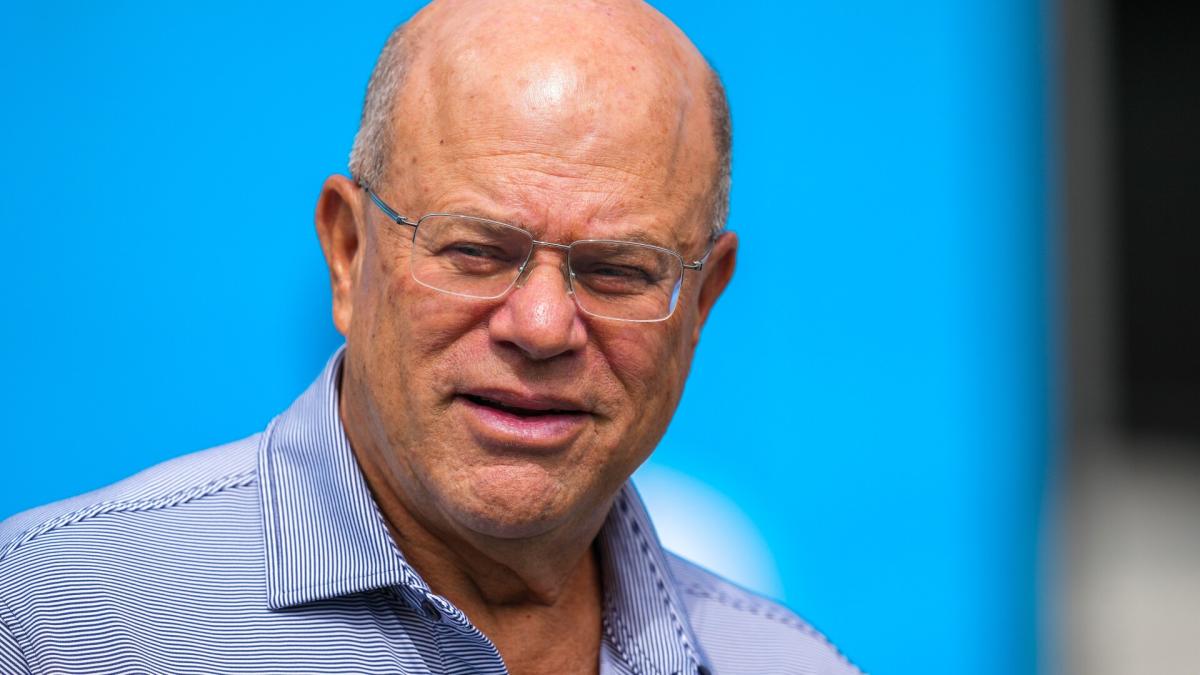People watch the ABC News presidential debate between Democratic nominee, U.S. Vice President Kamala Harris, and Republican nominee, former U.S. President Donald Trump, on Tuesday, Sept. 10, 2024, at a watch party at The Abbey, a historic gay bar in West Hollywood, California. (Mario Tama/Getty Images)
Inflation hit a three-year low last month, just as the presidential election is heating up.
But the high cost of housing and other necessities will keep the economy central to both of the major campaigns, as seen this week in the first debate between Kamala Harris and Donald Trump.
The Consumer Price Index, a measure of inflation, rose 2.5% in the past year, which is the smallest jump since February 2021, according to the latest Bureau of Labor Statistics data released Wednesday. The main driver of this increase was shelter, which moved up 0.5% in August. Airline fares, car insurance, education, and apparel also rose that month. But wages also rose 0.4% in August and 3.8% over the past year, and the average workweek increased by 0.1 hour — welcome news for workers trying to keep up with the cost of living.
Voters continue to say the economy is key in deciding who should be president, at 81%, and four in 10 say the economy and inflation are the most important issues guiding that decision.
Trump, the former president and Republican nominee, blamed the Biden administration for high prices early on Tuesday’s debate in Philadelphia, falsely claiming the post-pandemic wave of inflation is the worst ever.
“We’ve had a terrible economy because inflation, which is really known as a country buster, it breaks up countries, we have inflation like very few people have ever seen before, probably the worst in our nation’s history,” Trump said.


The worst inflation rate in U.S. history was actually in 1980, at 14%. The current wave – the highest inflation spike since then – peaked at 9.1% in June 2022.
Democratic nominee andVice President Harris responded to Tuesday’s question about the economy by touting tax cut proposals to combat housing costs.
“The cost of housing is far too expensive for far too many people. We know that young families need support to raise their children and I intend on extending a tax cut for those families of $6,000, which is the largest child tax credit that we have given in a long time so that those young families can afford to buy a crib, buy a car seat, buy clothes for their children,” she said.
Harris also pitched a proposal for a $50,000 tax deduction for small startup businesses.
Taylor St. Germain, an economist at ITR Economics, a nonpartisan economic research and consulting firm based in New Hampshire, said the latest data shows inflation is slowing enough to suggest it’s time for the Federal Reserve to start cutting interest rates.
“It’s encouraging to see that inflation is slowing and slowing to these much lower levels,” said St. Germain said. “However, it is, of course, still elevated and one of the reasons it’s still elevated is that shelter costs are driving a significant portion of that inflation, with rents rising as well, especially as we looked at this latest CPI report.”
The Fed began raising interest rates in March 2022 to bring down inflation, raising interest rates 11 times, and made its last rate hike in July of last year.
Economists are watching closely to see if the Fed cuts rates during its meeting next week, which is expected to have an impact on the housing market and other costs.
Kitty Richards, senior strategic adviser at Groundwork Collaborative, a progressive think tank based in Washington, D.C., said the Fed’s decisions are contributing to housing costs.
“The problem with housing is fundamentally a supply problem. And the Fed’s actions are actually making that supply problem worse by locking up the housing market and making it more expensive to buy, build or rehab housing,” she said. “Housing is such a big part of people’s experience of the economy and it really matters to folks when they might want to move and look around and they can’t. They can’t even afford to buy a house that is the same price as the house they live in because the interest rates are so high.”

Amanda Smith is a dedicated U.S. correspondent with a passion for uncovering the stories that shape the nation. With a background in political science, she provides in-depth analysis and insightful commentary on domestic affairs, ensuring readers are well-informed about the latest developments across the United States.







